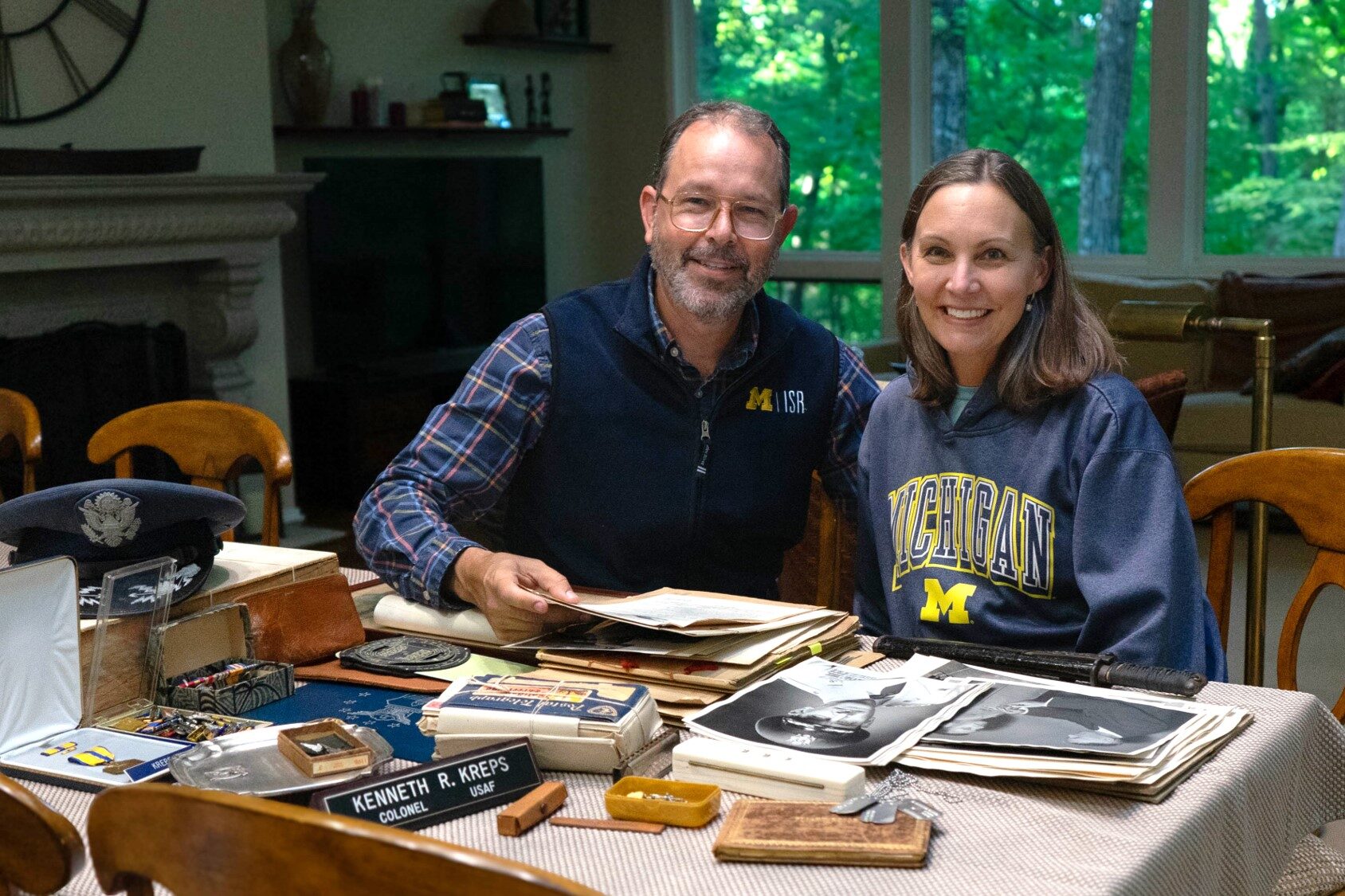A family’s quest for a hero’s ‘war chest’

From undisclosed honors to covert operations, the valiant military exploits of Colonel Kenneth Kreps were veiled in secrecy until a fateful discovery by his descendants. Witness the unveiling of a World War II hero’s saga as his family unpacks a long-lost treasure trove of historic memorabilia.
-
Men are dying for sex, literally
On average, women outlive men, and at any given age men have higher mortality rates. But why? U-M researcher Daniel Kruger’s new study shows that it’s the result of an evolutionary gambit: men often risk everything for the chance to reproduce.
-
He's got the power
Cdr. William Mayes is helping rebuild Iraq’s electrical infrastructure.
-
Yost's walkout
Someday soon, the Big Ten may expand. History shows that the biggest changes would be unexpected ones—like when U-M quit the Big Ten in 1907, and found its biggest rivals.
-
Robert Frost in Ann Arbor
How a lucky circle of U-M student scribes became friends with America’s poet-laureate.
-
Summer camp!
At Camp Michigania, generations of alumni families play at the lake, walk in the woods, and build lifelong friendships.
-
The dean of network news
As president of ABC News, U-M alumnus David Westin is one of the most important figures in TV news. It’s a long way from a childhood in Flint and Ann Arbor.
Columns
-
President's Message
Eureka! A look at the knowledge ecosystem
With $1.86 billion in research funding, U-M is leading the way in everything from energy solutions to artificial intelligence. -
Editor's Blog
A crisis by any other name…
You know what they say about opportunity. It knocks but once before the door slams shut. -
Health Yourself
So much for farm to table … We’ve got lab to table now
Who's ready to eat chicken that scientists 'hatched' in a lab and not from an egg? -
Climate Blue
How to keep your head above uncharted waters
Ricky Rood says goodbye to Floodtown as he guides us through the changing climate.
Commemorating an exceptional presidency
Fifty years ago, at a time of great division and turbulence in the U.S., Gerald R. Ford was sworn in as the 38th president of the United States. President Ford’s legacy is very much alive at the Ford School of Public Policy. This slideshow is inspired by the school’s recent tribute, “A life of public service,” in the Spring 2024 issue of State & Hill magazine. As noted by the editors, the values that distinguished Ford remain highly relevant to policy students today: his lifelong commitment to principled public service, his integrity, and his ability to connect across differences to forge consensus.















